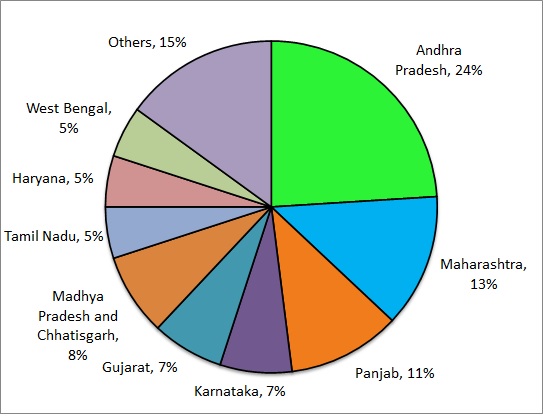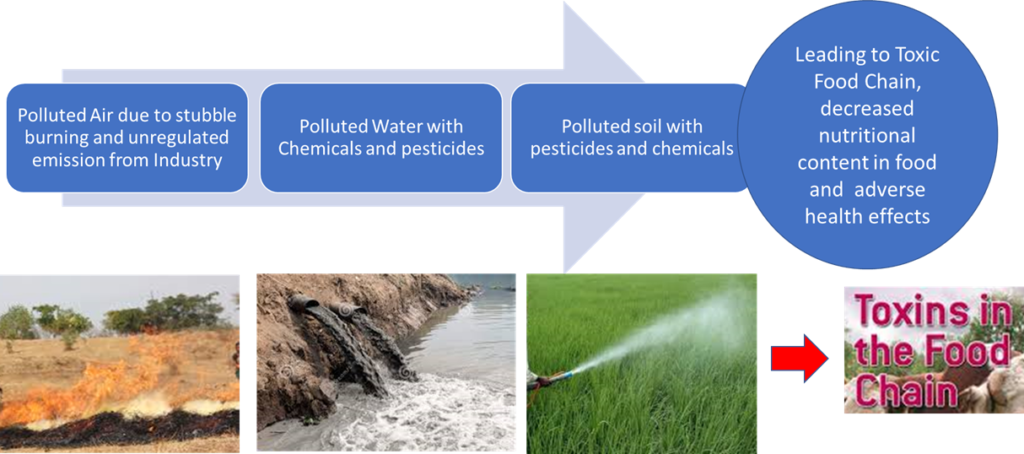State of Health and Environment in India
HEALTH ISSUES:
NCDs are a global epidemic, influencing both developing and developed countries. The India State-Level Disease Burden Initiative in 2017 by Indian Council of Medical Research (ICMR), it is estimated that the proportion of deaths due to Non-Communicable Diseases (NCDs) in India have increased from 37.9% in 1990 to 62% in 2016. The four major NCDs are cardiovascular diseases (CVDs), cancers, chronic respiratory diseases (CRDs) and diabetes which share four behavioral risk factors –unhealthy diet, lack of physical activity, and use of tobacco and alcohol compounded by stress.
Food as major influencer in occurrence of NCDs: Food is one of the major determinants of NCD development including cancers. As disorders like hypertension, diabetes, inflammation of cardiovascular system, etc. are triggered by unhealthy components majorly added in our food while cooking, the pesticides are associated with development of adverse health effects including cancers, which enters inadvertently in our food chain at the time of cultivation of the crops. Thus, it is important to identify and adopt the sustainable farming and cooking practices free of the dietary risk factors.
ENVIRONMENTAL ISSUES:
- Food production practices: India witnesses use of chemical pesticides, insecticide in heavy dosage: In India, a 2009 report suggests that pesticide consumption in India is abundantly high.

Figure 1: Distribution of Pesticide use in India (Source: Interdisc Toxicol. 2009; Vol. 2(1): 1–12)
The distribution of pesticide consumption is varied in different Indian states.

Figure 2: Distribution of pesticide consumption by states, India
The commercial production of food is heavily dependent upon chemical pesticide usage. Not only does it leave the heavy dose of residues in agricultural soil, the growing crops absorb fairly large amounts of pesticides, the ground waters are contaminated due to pesticide seepage, the open waters are contaminated with agricultural washouts from fields. The complexities associated with current practices of food production put a great deal of toll on environmental health and ecosystem.

Monocropping system for commercial production of wheat, paddy, sugarcane, etc. has led to depletion of water table. These are also known as water guzzler crops. A kilogram of wheat would require around 1500 litre water and 1.5 times more than this is required to produce a kilogram of rice. Sugarcane production requires nearly 300,000 litres of water to produce a quintal quantity.